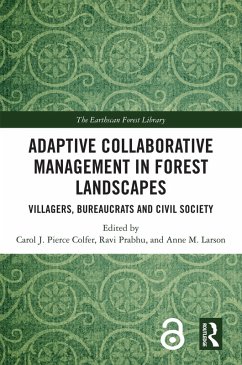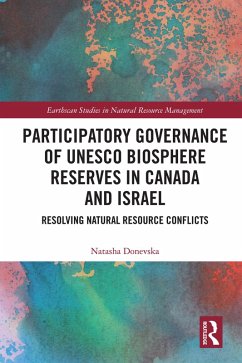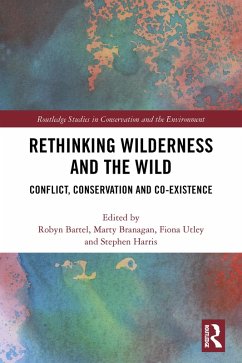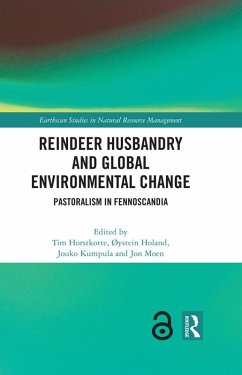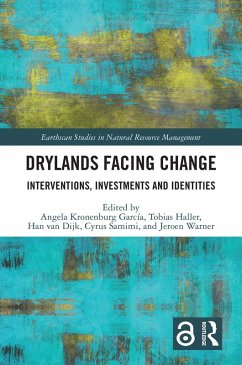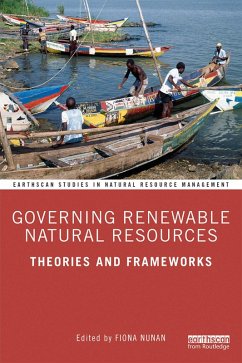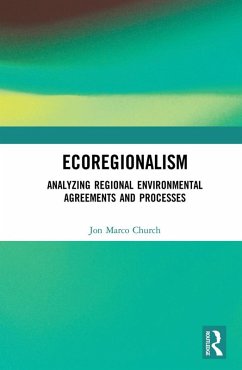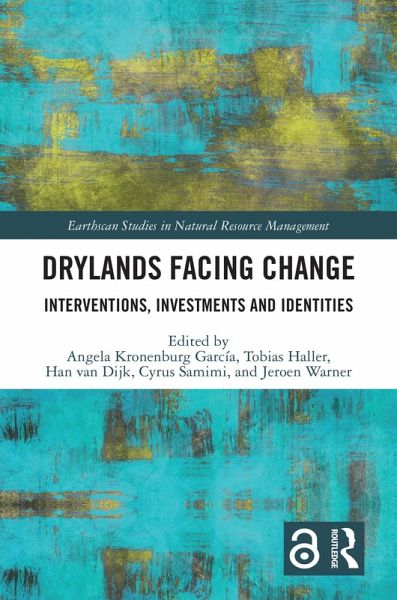
Drylands Facing Change (eBook, ePUB)
Interventions, Investments and Identities
Redaktion: García, Angela Kronenburg; Warner, Jeroen; Samimi, Cyrus; Dijk, Han van; Haller, Tobias
Versandkostenfrei!
Sofort per Download lieferbar
0,00 €
inkl. MwSt.
Weitere Ausgaben:

PAYBACK Punkte
0 °P sammeln!
This edited volume examines the changes that arise from the entanglement of global interests and narratives with the local struggles that have always existed in the drylands of Africa, the Middle East, and Central Asia/Inner Asia.Changes in drylands are happening in an overwhelming manner. Climate change, growing political instability, and increasing enclosures of large expanses of often common land are some of the changes with far-reaching consequences for those who make their living in the drylands. At the same time, powerful narratives about the drylands as 'wastelands' and their 'backward'...
This edited volume examines the changes that arise from the entanglement of global interests and narratives with the local struggles that have always existed in the drylands of Africa, the Middle East, and Central Asia/Inner Asia.
Changes in drylands are happening in an overwhelming manner. Climate change, growing political instability, and increasing enclosures of large expanses of often common land are some of the changes with far-reaching consequences for those who make their living in the drylands. At the same time, powerful narratives about the drylands as 'wastelands' and their 'backward' inhabitants continue to hold sway, legitimizing interventions for development, security, and conservation, informing re-emerging frontiers of investment (for agriculture, extraction, infrastructure), and shaping new dryland identities. The chapters in this volume discuss the politics of change triggered by forces as diverse as the global land and resource rush, the expansion of new Information and Communication Technologies, urbanization, the COVID-19 pandemic, and the spread of violent extremism. While recognizing that changes are co-produced by differently positioned actors from within and outside the drylands, this volume presents the dryland's point of view. It therefore takes the views, experiences, and agencies of dryland dwellers as the point of departure to not only understand the changes that are transforming their lives, livelihoods, and future aspirations, but also to highlight the unexpected spaces of contestation and innovation that have hitherto remained understudied.
This edited volume will be of much interest to students, researchers, and scholars of natural resource management, land and resource grabbing, political ecology, sustainable development, and drylands in general.
The Open Access version of this book, available at www.taylorfrancis.com, has been made available under a Creative Commons Attribution-Non Commercial-No Derivatives 4.0 license.
Changes in drylands are happening in an overwhelming manner. Climate change, growing political instability, and increasing enclosures of large expanses of often common land are some of the changes with far-reaching consequences for those who make their living in the drylands. At the same time, powerful narratives about the drylands as 'wastelands' and their 'backward' inhabitants continue to hold sway, legitimizing interventions for development, security, and conservation, informing re-emerging frontiers of investment (for agriculture, extraction, infrastructure), and shaping new dryland identities. The chapters in this volume discuss the politics of change triggered by forces as diverse as the global land and resource rush, the expansion of new Information and Communication Technologies, urbanization, the COVID-19 pandemic, and the spread of violent extremism. While recognizing that changes are co-produced by differently positioned actors from within and outside the drylands, this volume presents the dryland's point of view. It therefore takes the views, experiences, and agencies of dryland dwellers as the point of departure to not only understand the changes that are transforming their lives, livelihoods, and future aspirations, but also to highlight the unexpected spaces of contestation and innovation that have hitherto remained understudied.
This edited volume will be of much interest to students, researchers, and scholars of natural resource management, land and resource grabbing, political ecology, sustainable development, and drylands in general.
The Open Access version of this book, available at www.taylorfrancis.com, has been made available under a Creative Commons Attribution-Non Commercial-No Derivatives 4.0 license.
Dieser Download kann aus rechtlichen Gründen nur mit Rechnungsadresse in A, B, BG, CY, CZ, D, DK, EW, E, FIN, F, GR, HR, H, IRL, I, LT, L, LR, M, NL, PL, P, R, S, SLO, SK ausgeliefert werden.




